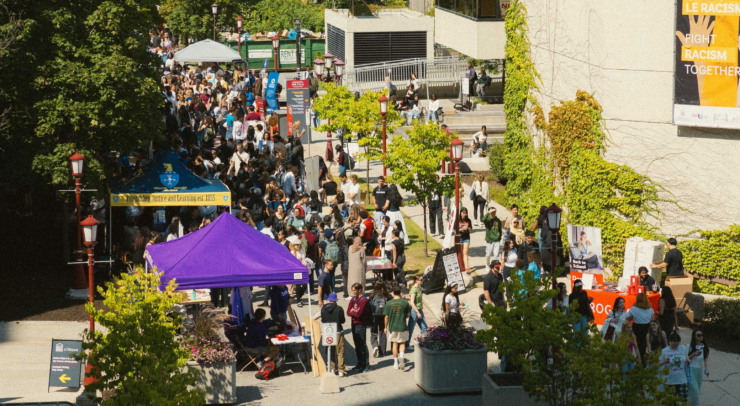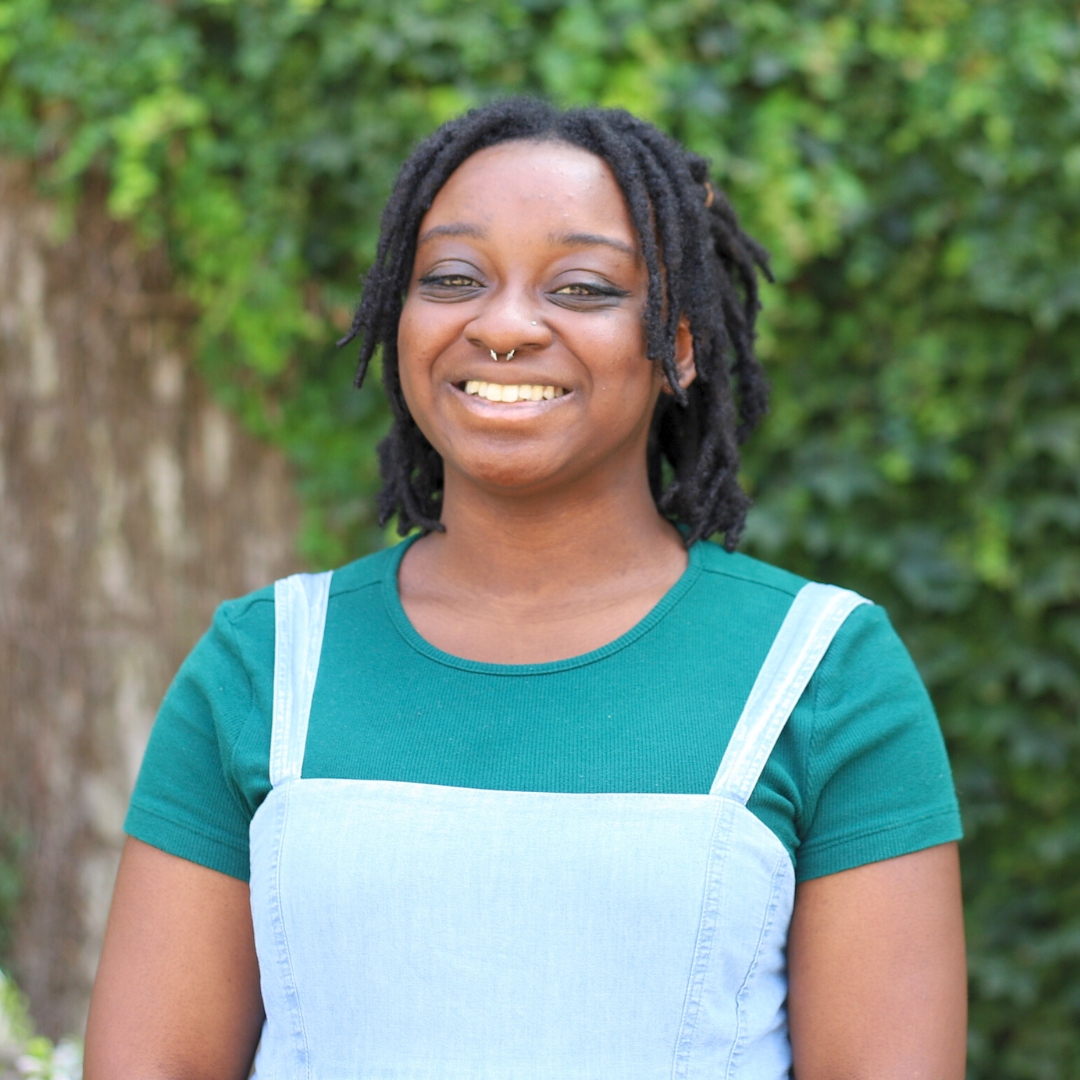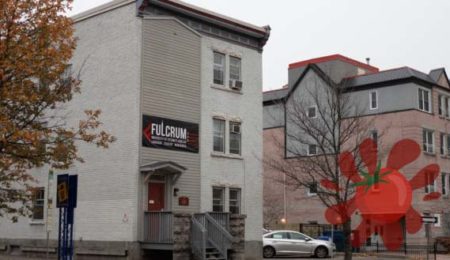Can a new mandate tackle the complex, ever-changing portfolio of clubs?
Campus clubs are a core tenant of student life. It’s a great way to meet new people, get involved with a cause you’re passionate about, or simply try something new. Whether you’re being approached at the annual clubs fair, or cracking jokes in a club’s group chat, you can’t deny that clubs are part of the lifeblood of university life — but even that doesn’t come for free.
Clubs funding helps the hundreds of clubs at the university exist, either through annual galas or simple movie nights. But during the 2023-24 year, clubs experienced significant delays — both with funding and communication of said funding — from the University of Ottawa’s Students Union (UOSU). With turnover complications in both the union and clubs, overwhelming demand, and multiple lines of communication, funding can be a challenge.
With a new academic year under way, and a new team tackling the clubs portfolio, both union members and club executives feel hopeful that club funding will be handled in a more efficient and honest way.
When did it all go wrong?
For the 2023-24 academic year, the student life commissioner became responsible for the clubs and services portfolio — thus dissolving the previous role of clubs and services commissioner.
Before this time, former student life commissioner and current UOSU director for social sciences, Rayne Daprato, explains that the ‘first-come, first-serve’ funding model occurred during the summer of 2023. At the time, Daprato was hired as the interim student life commissioner when the responsibilities of clubs were not yet under their supervision.
At this time, the clubs office established a “first-come, first-served” funding model for clubs, with summer 2023 funding being approved on a “case-by-case” basis. This model proved troublesome, however, as some clubs who applied in summer or fall would receive significantly larger portions than clubs who applied in the winter.
“Clubs were asked to submit their applications for funding and the idea was that UOSU would give out as much funding as possible to the clubs,” Daprato explained in an email statement. “If that meant we were out of funding in the winter, so be it.”
As a result, the club funding remainder in the union budget was evenly distributed between the fall and winter semesters and then lowered by the same percentage, so every club could receive some funding. Daprato also reiterates that during this period, clubs could apply for up to $6,000 each, and many members of the clubs office had accepted that no funding would be sent during the winter.
“What was approved in the summer was thousands and thousands of dollars, and then in fall, that amount was a lot smaller. By winter 2024, the leftover funding available for club funding was a small fraction,” explained UOSU student life coordinator and president of the uOttawa Theatre Club, Sydney Williams.
“And so in the summer, we would see clubs receiving $6,000 (…) I will say myself, my club was approved for $1,500. And then in winter, no club was approved for more than $360,” she explained. “So my club went from receiving $1,500 in the summer to only $273 in winter, despite our applications being identical.”
Britney Achu, the outgoing president of the Black Student Leaders Association (BSLA), said that her club received only $483 after submitting their annual budget to the Union.
“We [the BSLA] understand that there is a set pool of money, and we know that we’re privileged enough that we have a bit of funding that we can tap into or look at other revenues to try and find funding,” she said. “So we try our best to ask for the bare minimum when it comes to our events, knowing that we want there to be enough for other clubs to also have funding to provide for their members.”
Achu says this amount was not the minimum $500 of club funding that the union had pledged for administrative details, such as bank account fees and website domain.
Maya Tuchenhagen, president of the Outdoors Club and fourth-year health sciences student, says that obtaining club funding has been really challenging due to inconsistencies with the application process and communication with union members.
“In the past couple of years, we’ve tried to actually not apply for club funding. Because we understand the challenges of applying, figuring out the application process as it changes every year, and then not even knowing if we’re able to run the events.”
As a result, several clubs have resorted to searching for funds through alternate means. In the case of the Outdoors Club, this is in membership fees from its approximate 300 members, or in the case of the Black Student Leaders Association, grants and sponsorships.
“Our previous club president really emphasized finding opportunities that we could get funding elsewhere,” said Achu. “So we try our best to send out sponsorship packages [to venues]; we try our best to look at areas to apply for grants.”
However, by the Winter General Assembly (held in March 2024), there were still some clubs who applied in the summer and had yet to receive their approved funding and spoke out about this delay.
By the beginning of September, coordinator Williams said she was still resolving the issues with the previous club funding, a year later. “We really want to make sure that the timeline is accessible to clubs, and it’s clear and makes sense. It also gives them enough time to get that funding and use it, [rather than] waste their time, months and months following.”
Something to give each other
The delays in club funding and inconsistencies in communication between club executives and Union members can lead to frustration and delays, especially when clubs are planning for big or regular events for their members.
Tuchenhagan explained that the Outdoors Club does not make money from events, with their financial goals being to break even every year. For larger, more expensive events, such as a gala, they utilize their yearly membership fees to subsidize costs.
These finances were complicated by the fact that the Outdoors Club had a technical issue with logging into their club’s account. Tuchenhagan was in contact with a member of the Union about the issues, but the communication never reached a conclusion.
“We were running the gala at the end of March, and it takes a lot of money to run a gala, and it was our first time running a gala,” she said. “It was extremely stressful to not have funding, and we ended up being at a loss at the end of the event.”
“It would have just been a lot more stress-free if we had that financial stability.”
For Achu and the BSLA, club executives have underestimated the attendance of their annual events, ranging from simple movie nights to their annual galas. “We’re starting to realize that the supplies that we need [has to increase] to meet the needs of the students coming to our events,” she said.
Achu elaborated that most of the BSLA’s events are held at the beginning of the academic year to attract new members, as well as Christmas dinners for international students staying in the city and events for Black History Month in February. “We’ve [asked ourselves] ‘how can we provide that service on campus for students?’ It’s meals, it’s games, it’s community.”
“Without adequate funding from UOSU and without it being on time (…), we cannot plan for these big events efficiently,” she said. Achu credits other executive members taking interest in finance and past club financial records for being able to manage club funding. “How do we fund other revenues of funding such that we can still keep up with demand and still keep up with demand and still keep up with the events that we want to run?”
Achu additionally recounts attending the clubs town hall meeting last year, and following up with the union about more questions and outstanding fees for previously hosting an event. She said the responses felt very bureaucratic and shallow. “We were really hopeful because they actually sat with us, they actually listened…for us it seemed like a jump in the right direction. But then after a while, it was like, ‘where have we taken a few steps forward?’”
Projected numbers
For the 2024-25 year, UOSU has committed to distributing around $370,000 in club funding (before opt-outs), allocating an even 30-35 per cent each semester — summer, fall and winter — to applicants.
UOSU interim operations commissioner, Greg Coleman, explains that students voting for the $4.99 club funding levy in the fall by-election has helped the union observe a more consistent budget for club funding.
“The budget we’re expecting to have for this budget is significantly higher than what the union maintained in the past,” he elaborated. “Because it’s a specific levy, it was protected from some of the [UOSU membership] cuts that were voted on this past year.”
However, Coleman describes that funding enforcement will look different in the current year, due to the simultaneous increase in funding, demand, and more equal distribution between semesters. Total funding will be raised around $150,000 from last year’s $213,000 budget line.
Both Tuchenhagan and Achu have had a more positive experience interacting with UOSU members after the start of a new mandate. The Outdoors Club was not alerted about the deadline for fall club funding, thus continuing frustrations.
Board member Daprato acknowledges that although most clubs did receive less funding and tensions against UOSU continued, she believed that during her term, she and her team worked closely with clubs and communicated more as a strength.
“I hope the board members on the Clubs Committee can continue to look at the relationship between the clubs and the UOSU, and the systems that hold these two parties together,” she said. “I encourage club members to stay involved and engaged. When we shout at people and stay frustrated at the systems in the shadows, very little can happen that is helpful or productive.”






